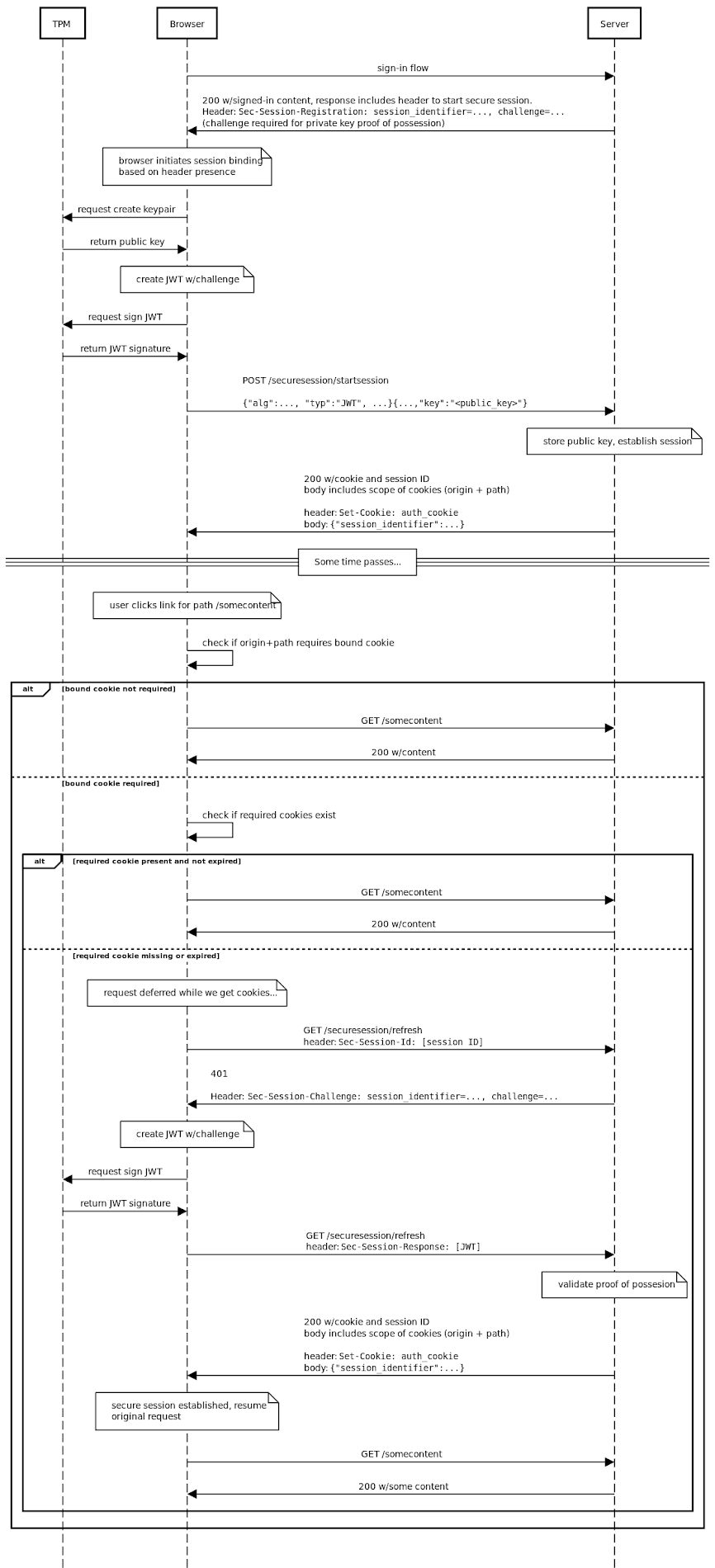
Google on Tuesday stated it is piloting a brand new function in Chrome known as System Certain Session Credentials (DBSC) to assist shield customers towards session cookie theft by malware.
The prototype – at the moment examined towards “some” Google Account customers operating Chrome Beta – is constructed with an purpose to make it an open net normal, the tech large’s Chromium staff stated.
“By binding authentication periods to the machine, DBSC goals to disrupt the cookie theft trade since exfiltrating these cookies will not have any worth,” the corporate famous.
“We expect it will considerably scale back the success charge of cookie theft malware. Attackers can be pressured to behave domestically on the machine, which makes on-device detection and cleanup more practical, each for anti-virus software program in addition to for enterprise managed gadgets.”
The event comes on the again of experiences that off-the-shelf data stealing malware are discovering methods to steal cookies in a way that permits menace actors to bypass multi-factor authentication (MFA) safety and acquire unauthorized entry to on-line accounts.
Such session hijacking strategies have been round for years. In October 2021, Google’s Risk Evaluation Group (TAG) detailed a phishing marketing campaign that focused YouTube content material creators with cookie stealing malware to hijack their accounts and monetize the entry for perpetrating cryptocurrency scams.
Earlier this January, CloudSEK revealed that data stealers like Lumma, Rhadamanthys, Stealc, Meduza, RisePro, and WhiteSnake have up to date their capabilities to hijack person periods and permit steady entry to Google companies even after a password reset.
Google informed The Hacker Information on the time that “assaults involving malware that steal cookies and tokens aren’t new; we routinely improve our defenses towards such strategies and to safe customers who fall sufferer to malware.”
It additional really helpful customers to allow Enhanced Protected Shopping within the Chrome net browser to guard towards phishing and malware downloads.
DBSC goals to chop down on such malicious efforts by introducing a cryptographic method that ties collectively the periods to the machine such that it makes it more durable for the adversaries to abuse the stolen cookies and hijack the accounts.

Provided by way of an API, the brand new function achieves this by permitting a server to affiliate a session with a public key created by the browser as a part of a public/personal key pair when a brand new session is launched.
It is price noting that the important thing pair is saved domestically on the machine utilizing Trusted Platform Modules (TPMs). As well as, the DBSCI API permits the server to confirm proof-of-possession of the personal key all through the session lifetime to make sure the session is lively on the identical machine.
“DBSC provides an API for web sites to regulate the lifetime of such keys, behind the abstraction of a session, and a protocol for periodically and robotically proving possession of these keys to the web site’s servers,” Google’s Kristian Monsen and Arnar Birgisson stated.
“There’s a separate key for every session, and it shouldn’t be attainable to detect that two completely different session keys are from one machine. By device-binding the personal key and with applicable intervals of the proofs, the browser can restrict malware’s capability to dump its abuse off of the person’s machine, considerably growing the prospect that both the browser or server can detect and mitigate cookie theft.”
One essential caveat is that DBSC banks on person gadgets having a safe method of signing challenges whereas defending personal keys from exfiltration by malware, necessitating that the online browser has entry to the TPM.
Google stated assist for DBSC will likely be initially rolled out to roughly half of Chrome’s desktop customers based mostly on the {hardware} capabilities of their machines. The most recent undertaking can be anticipated to be in sync with the corporate’s broader plans to sundown third-party cookies within the browser by the top of the 12 months by way of the Privateness Sandbox initiative.
“That is to guarantee that DBSC doesn’t grow to be a brand new monitoring vector as soon as third-party cookies are phased out, whereas additionally making certain that such cookies could be totally protected within the meantime,” it stated. “If the person utterly opts out of cookies, third-party cookies, or cookies for a selected web site, it will disable DBSC in these eventualities as effectively.”
The corporate additional famous that it is partaking with a number of server suppliers, identification suppliers (IdPs), and browser distributors like Microsoft Edge and Okta, who’ve expressed curiosity in DBSC. Origin trials for DBSC for all supported web sites are set to start by the top of the 12 months.
